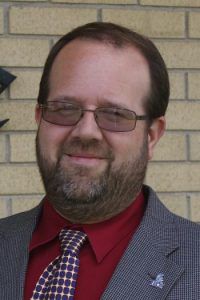Dr. William Rae Denison, director emeritus of the John M. Long School of Music at Troy University and director of the Collegiate Singers for over 30 years, passed away in February after a brief battle with cancer.
His quiet demeanor belied the musical gentle giant within; Dr. Denison was a talented musician and gifted teacher but his humility would never let anyone know how great he truly was.
The man was smart, too — he was the valedictorian of his high school graduating class of 500 at Port Huron High School in Michigan. He attended the University of Michigan and was a part of the world-renowned Michigan band under the direction of Dr. William D. Revelli. He was a Phi Beta Kappa graduate and earned his bachelor’s degree in pipe organ performance.
Upon his college graduation, he moved to Huntsville to become the organist at the Church of the Nativity. He began teaching at Athens State University, where he met his wife of 54 years, Jane.
In 1967, Dr. Denison was offered a job at Troy University where he taught theory and conducting and served as the accompanist for the Collegiate Singers, directed at the time by Dr. Charles Farmer. Troy president Dr. Ralph Adams suggested Dr. Denison further his education at Florida State and he received a doctorate in music theory from FSU in 1969.
Over the next 50 years, Dr. Denison taught just about everything at Troy from music theory to conducting, from teaching methods to piano and organ lessons, to conducting the opera and musical workshop performances, and of course serving as the director of the Madrigals and the Collegiates.
He was a recipient of Troy University’s highest teaching honor, the Algernon Sydney Sullivan Award, and was chairman of the academic council. He presided over a period of growth and change at the university culminating in Troy’s accreditation by the National Association of Schools of Music for the first time.
Throughout his career, he was a part of the Troy Arts Council and the Troy Music Study Club. After retirement, he and his wife ran an antique store in Troy. Dr. Denison served as both organist and choirmaster for both St. Mark’s Episcopal Church and First Presbyterian Church for 50 and 40 years, respectively.
And that brings me to the funeral, the one time any of us witnessed an opportunity for this man to be thanked publicly for his hard work on our behalf.
The funeral for Dr. Denison was the most meaningful, moving celebration of life I’ve ever had the privilege to attend. Shortly after driving up to the church, I spotted Troy director of bands emeritus Dr. Johnny Long on the sidewalk and I walked with my former band director into the church which was filling to capacity. That was surreal enough; it seemed wrong, somehow, to see Troy faces past and present for this unexpected and sad event.
The quiet grace with which Dr. Denison led his life was on full display at this service and Troy music professor Dr. John Jinright’s tour de force performance was just right for the occasion. The windows of St. Mark’s Episcopal Church were rattling as Dr. Denison’s chosen hymns were performed on the organ he’d played until only a few weeks before; I cannot imagine how emotional it must have been for Dr. Jinright to be playing it, having worked so closely with Dr. Denison over the years.
The readings were so well-chosen, too. It seemed they all communicated the love of music and the importance of kindness.
The Collegiate Singers, under the direction of Dr. James Brown, gathered near Dr. Denison’s casket and performed. I surveyed the congregation, trying not to look at the former students or professors I knew up there, but the tears couldn’t help but flow at the beauty of the moment. As I sat there crying in the church while the Collegiate Singers performed, all I could think of was the younger version of myself sitting in that man’s office complaining about something or other — usually my grades or a bad night of fraternity foolishness — and how he always managed to talk me off the ledge. Or the hours he spent trying to teach me how to play the piano; he truly was a patient man.
I also thought of all those days in Collegiate Singers rehearsals where he demonstrated patience like no one I have ever known. He could take people who knew nothing about the subject, who even were against it, and before long turn them into dedicated musicians. His calm and caring demeanor made a difference.
I even got to sit next to him in the trombone section of the Southeast Alabama Community Band for several years and his self-deprecating humor was always on display when he referred to his unpolished “green trombone.”
He also showed his impressive skill in conducting classes. I would argue the personality of the music department at Troy today, which now occupies a new multimillion dollar facility, reflects Dr. Denison’s influence more than he was probably ever willing to admit or recognize but it is a legacy all the same.
For those of us who attended Troy during any of the 50 years that Bill Denison was around, I think we can all agree we are better musicians and better people because of him and that’s the greatest gift he could have left behind.



